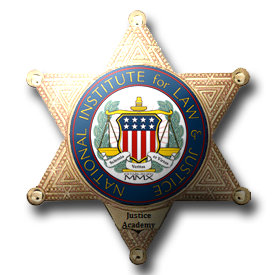Welcome to the Police Special Operations Blog. This new feature of JusticeAcademy.org is specifically designed to provide a forum where members of the profession can address the contemporary issues of the day. This blog is hosted by Commander Charles “Sid” Heal. He is a retired Commander of the Special Operations Division of the Los Angeles Sheriff’s Department with nearly 33 years of service in law enforcement, nearly half of which has been spent in units charged with handling law enforcement special and emergency operations. He currently serves as a consultant and is a member of the Board of Governors of JusticeAcademy.org. You can email him with your comments at [email protected]


Professional organizations have been around for at least two-thousand years and provided many of the same advantages as they do now, not the least of which was to ensure quality service and craftsmanship. This was especially important when there were no formal schools and so the organizations themselves provided qualified instruction, developed standards and insisted on excellence. Membership was prized, and the organization sanctioned any who failed to perform to standards. In this manner, they not only served their membership by providing training, skills, knowledge and protection, but the public at large who came to view them as guardians of quality assurance.
Some contemporary professional organizations, such as the American Bar Association (ABA) or American Medical Association (AMA), still sanction misconduct or incompetence, which can have devastating effects on a transgressor’s career. Others, like the National Association of Underwater Instructors (NAUI) or the Professional Association of Diving Instructors (PADI), have built their reputations by establishing standards and qualifying students to the point where their certification is necessary to rent equipment, use facilities or even participate in the activity. Most, however, are more an association of professionals who seek to share knowledge and experience and collectively address issues of concern. Currently, all American law enforcement professional organizations are more akin to an association of professionals rather than a professional association. While CATO is currently one of the largest regional tactical associations in the United States, we are otherwise indistinguishable from any other.
In spite of requests from the NTOA dating back to the mid-1980s, California is only one of two states in the nation that have mandated minimum requirements for SWAT personnel. CATO played a major role in crafting these requirements and remains in the forefront of providing training to enable law enforcement personnel to meet them. Somewhat surprisingly, these minimum standards were met with suspicion, and in some cases, outright hostility by police executives who objected to “outsiders” dictating minimum standards for what had historically been their exclusive domain. Likewise, since these state statutes were not accompanied with finances, objections were raised for mandates without funding. Far worse than either of these problems, however, is that a focus has been created on minimum standards instead of best practices.
The predominate problem seems to be the irrefutable fact that there is no reliable method of distinguishing those that are fully qualified from novitiates; who, though willing and enthusiastic, lack the training, knowledge and experience of those who are truly expert. The training certificates of completion accumulated over months and years provide little or no insight as to whether a subject has been actually mastered, or even to what extent it is relevant to the task at hand. The most cited criterion for expertise is simply an individual’s years of service in the tactical community. Whether a person was on a highly active team with frequent operations or, far more typically, one or two times a year, goes unquestioned. Likewise, skills, knowledge and abilities necessary for employing chemical agents, serving as a sniper or maneuvering as part of an entry team, are only preparatory for more advanced assignments, such as a team leader or team commander, and yet no standardized prerequisites exist for a track of progressively challenging roles and responsibility.
The success enjoyed by many SWAT teams can be attributed more to the quality of their personnel than any institutionalized methodology for providing the essential training, education and experience. Many officers attend training on their own time and at their own expense. They seek to better themselves by reading texts and after action reviews and attending debriefs. While their personal initiative is laudatory, there are no institutionalized recommended reading lists, mentorship programs or guided learning curricula